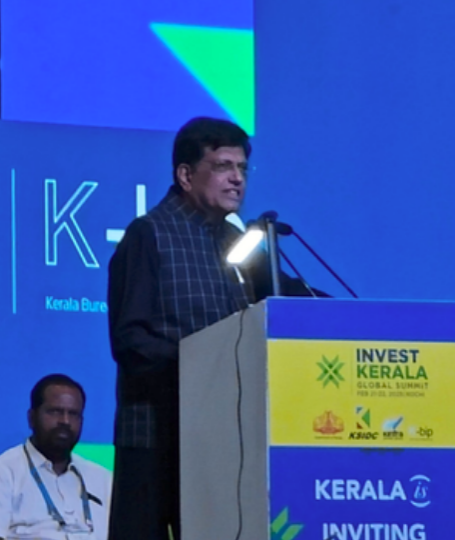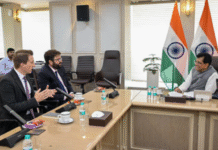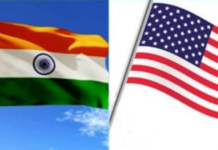New Delhi – Amid mounting concerns over the potential impact of US tariffs on Indian businesses, Union Commerce and Industry Minister Piyush Goyal is set to meet with exporters this week. The meeting, expected to take place on Wednesday, will bring together key stakeholders, including ministry officials, representatives from the Federation of Indian Export Organisations (FIEO), export promotion councils (EPCs), and other industry figures.
The primary agenda of the meeting is to discuss the implications of the US’s recently imposed 27% reciprocal tariffs on Indian products. Small and medium-sized enterprises (MSMEs), in particular, are seeking fiscal incentives to counter the financial strain caused by the escalating trade tensions between the two nations.
While the impact of the tariffs is still unfolding, India’s export sector is concerned, especially in light of the growing possibility of additional duties being levied on Indian products in the future. The Indian pharmaceutical industry, which forms a significant part of India’s exports to the US, is especially vulnerable. Although the sector was initially exempted from the first tranche of US reciprocal tariffs, there are fears that further punitive measures could hurt profit margins.
In the fiscal year 2024, India exported $8 billion worth of pharmaceutical products to the US, making it the country’s largest export destination for drugs. India’s pharmaceutical sector supplies approximately 40% of the generics consumed in the US, making the sector a crucial pillar of the trade relationship between the two countries.
According to a report by SBI Research, India’s overall exports to the US have been on a decline since FY23, with Indian goods accounting for about 17-18% of total exports. The research also notes that the top 15 products exported to the US represent 63% of the total exports. While the report acknowledges the growing challenges posed by rising tariffs, it also highlights that India’s relatively lower tariff burden—compared to countries like China (34%), Thailand (36%), Indonesia (32%), and Vietnam (46%)—could provide India with a comparative advantage in certain sectors. This, in turn, may boost exports in the long term, the report suggests.
Despite the potential negative impacts, the PHD Chamber of Commerce and Industry (PHDCCI) remains optimistic about India’s economic resilience. Citing India’s price competitiveness and favorable government policies, the PHDCCI expects the Indian economy to experience only a marginal 0.1% impact on its GDP due to the tariffs.
As global trade continues to evolve in the wake of shifting tariffs and trade policies, the outcome of this week’s discussions between Piyush Goyal and exporters will likely have significant implications for India’s trade strategy and future relations with the US. (Source: IANS)








